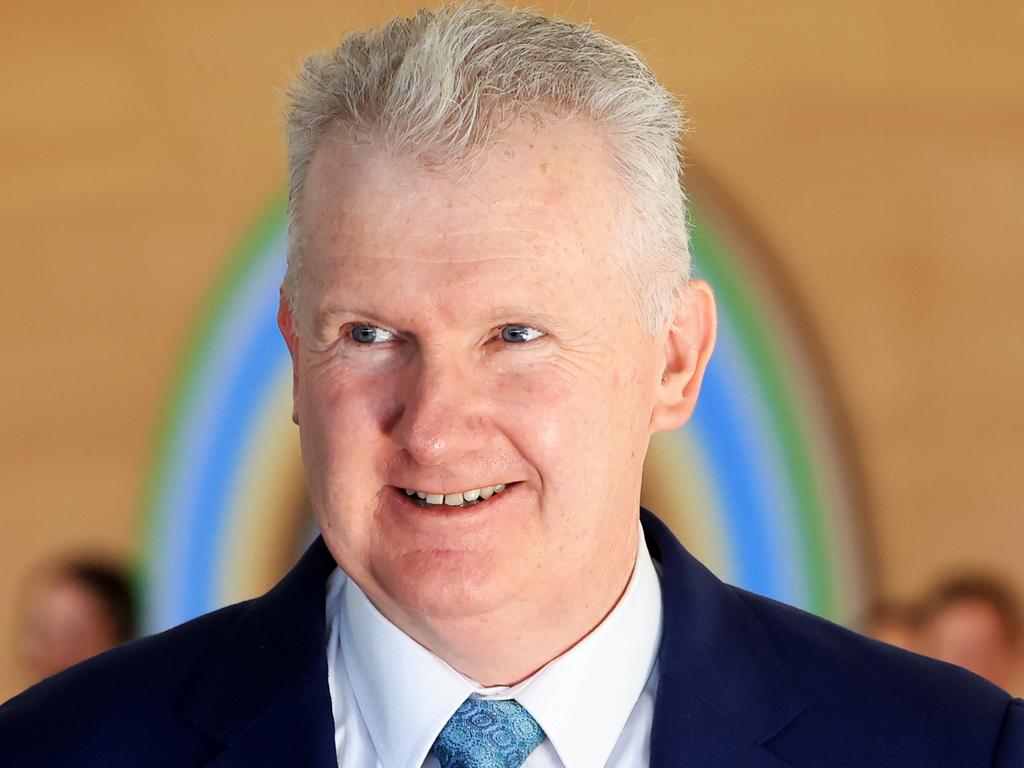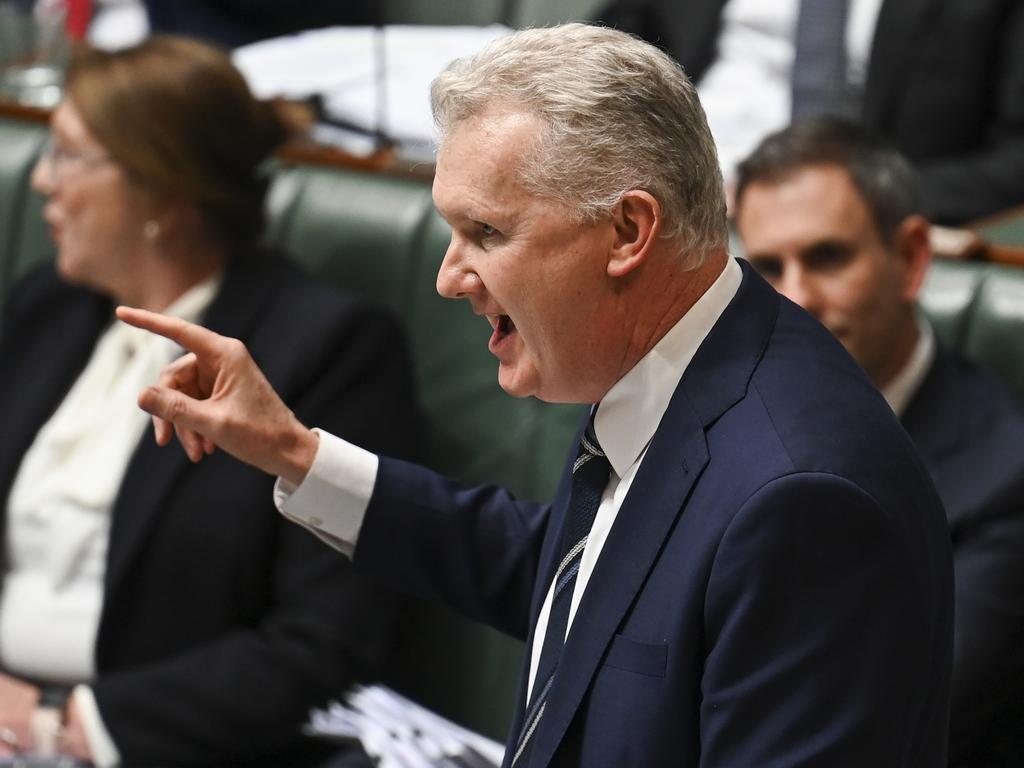IR alarm as same job, same pay bill looms
Key elements of the Albanese government’s controversial same job, same pay laws are poised to go before cabinet as industry groups ring alarm bells.

Key elements of the Albanese government’s controversial same job, same pay laws are poised to go before cabinet as industry groups ring alarm bells over fears the reforms will be far broader in their reach than first proposed.
Public support for the rewriting of workforce laws is softening, according to a coalition of business groups, in the face of an industry-backed campaign to portray the changes as costing jobs and stifling ambition.
The Australian understands Employment and Workplace Relations Minister Tony Burke is preparing to take elements of the second tranche of industrial relations reforms to cabinet as early as next week with a bill expected to be introduced to parliament in August.
Mr Burke has sought to allay concerns from business groups through public assurances the same job, same pay laws would be targeted only at closing labour-hire loopholes the government claims were allowing employers to pay temporary staff less than full-time workers in the same job.
But The Australian understands that private consultations with industry and business groups suggest the laws may have far wider reach than what the government is saying publicly, with any form of subcontracted work used by business, including catering, potentially captured by the reforms.
A coalition of business groups will intensify its campaign against the proposed laws, which are yet to be drafted, following focus group studies commissioned by the Minerals Council of Australia that suggest public opinion was shifting against the government and unions.
The research, conducted by JWS and paid for by the MCA, one of the key industry lobby groups engaged in the campaign against the government, suggested almost half of Australians surveyed – 46 per cent – were supportive of the principle of same job, same pay.
However, this was skewed by the widespread belief that the government’s policy was about closing the gender pay gap.
When respondents were prompted with further information about what the government was actually proposing, and presented with the industry advertisements critical of the policy, support fell by half to 26 per cent.
Those opposed to the reforms rose from 19 per cent initially to 47 per cent following exposure to the advertisements.
When then shown the union ads promoting the laws to close loopholes, support rose back to 31 per cent, with the total opposed at 34 per cent.
The research by the industry suggests views toward the reforms were mixed, but the industry’s campaign was having an effect on swinging public opinion, with 72 per cent of people supporting the principle that employers should be able to pay workers according to their skill level and experience.
A third of those questioned believed the reforms would add to business and consumer costs.
Minerals Council of Australia CEO Tania Constable accused the government of a secret agenda and said the reforms would negatively affect every business, small to large.
“It is clear Australians wholeheartedly believe that workers should be rewarded for their effort, experience and qualification,” Ms Constable told The Australian.
“But that principle is under serious threat from the federal government’s so-called same job, same pay proposal.
“Australians are rightly asking why a worker with limited experience and qualification should be paid the same as someone with decades of experience and hard-won qualifications.
“This is not, as the government suggests, merely about ‘closing labour hire loopholes’.
“It captures every business, large or small, that provides workers, services or skills to another company, including subcontractors.
“The government now needs to listen to the real concerns of workers and businesses. Its policy is wrong in principle and will be a disaster in practice.”
The government would not comment on the timetable for the legislation or when the proposed bill might come before cabinet.
It is understood the consultation period with business is still ongoing.
The MCA research also revealed deeper attitudes within the community towards unions, with conflicting messages about the role of the industrial movement.
“There is general consensus that unions have their place, specifically in public sector industries,” the research said.
“They are seen as a body to ‘fight’ for the collective, they are given some credit for increasing wages and conditions. However, while soft voters support the ‘purpose’ of unions – to help workers – unions in practice are seen as ‘thuggish’ and ‘militant’.
“Soft voters criticise unions’ high fees with limited returns. There is high awareness of union officials rorting the system and impacts to the general public of union overreach.”
When it came to the same job, same pay reforms, awareness of industrial relations workplace reforms was not a “top-of-mind” issue.
At best, there was a vague awareness that the government was planning changes to workplace laws but the detail was lost on most people. The government’s “labour hire loophole legislation” framing was considered a “word salad” with many respondents failing to identify what it related to.








To join the conversation, please log in. Don't have an account? Register
Join the conversation, you are commenting as Logout